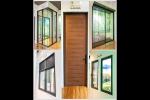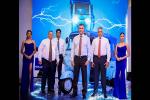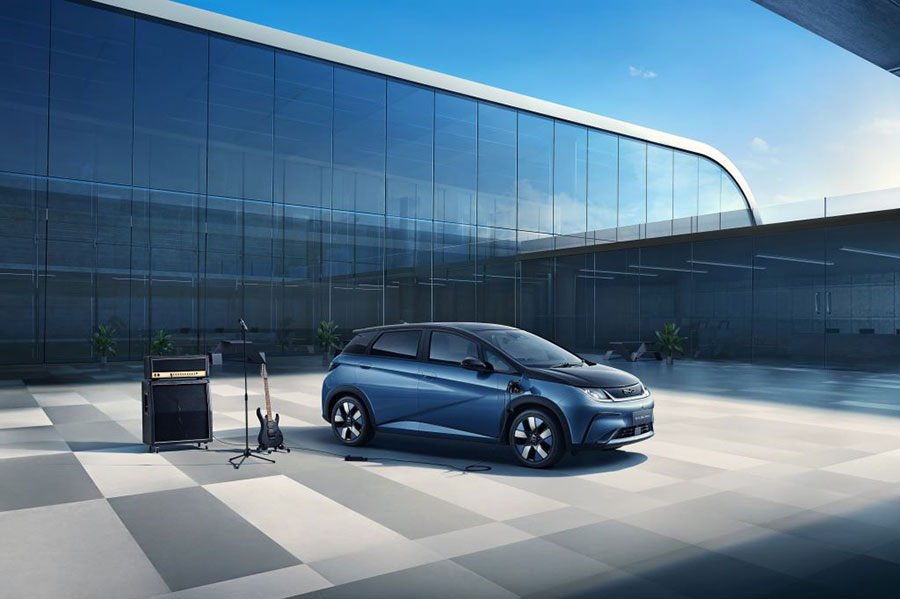This shift wouldn't be possible without ground-breaking innovations that have addressed key challenges and made NEVs more efficient, safer, and sustainable.
Leading the charge in these advancements is BYD, a company proving that electric mobility is not just feasible but the future.
Lithium Iron Phosphate (LFP) Batteries : A Safer, Longer-Lasting Power Source
One of the biggest hurdles EVs faced was battery technology.
Traditional Lithium-ion (Li-ion) batteries, while effective, carried concerns about potential thermal runaway (overheating).
BYD emerged as a pioneer in LFP batteries, a Li-ion variant offering several advantages.
LFP batteries boast superior thermal and chemical stability, significantly reducing the risk of fire.
Additionally, they offer a longer lifespan and better tolerance for extreme temperatures, making them ideal for diverse climates.
While BYD's Blade Battery utilizes the space-saving cell-to-pack technology, the company is truly pushing boundaries with its latest innovation : Cell-to-Body (CTB) technology.
This cutting-edge approach integrates the Blade Battery cells directly into the vehicle's chassis, eliminating the need for a separate battery pack altogether.
This maximizes space efficiency and contributes to the overall structural integrity of the car.
The Blade Battery's unique honeycomb structure further enhances its thermal stability and safety by preventing heat propagation in case of internal cell issues.
This focus on safety is evident in the battery's ability to withstand rigorous testing, including the Mount Everest nail penetration test where it remains stable and doesn't emit smoke or fire.
BYD's commitment to innovation extends beyond the Blade Battery, constantly seeking advancements that redefine the boundaries of electric vehicle technology.
Plug-in Hybrid Advantage : Addressing Range Anxiety with Choice
Range anxiety, the fear of running out of power before reaching a charging station, has been a major hurdle for some considering the shift to EVs.
Manufacturers like BYD have resolved this by driving tech innovations that has delivered the Blade Battery and the e-Platform 3.0 which not only enhances safety but also offers the automobiles a range of 650Kms (for the BYD SEAL) with a single charge under NEDC (New European Driving Cycle) standards.
Addressing concerns of travelling longer distances with a single charge, where sufficient chagrining infrastructure is unavailable, BYD developed the DM-i plug-in hybrid system.
A development which combines the powerful electric motor with a fuel-efficient gasoline engine, offering the best of both worlds to consumers.
The electric motor prioritizes electric power for everyday commutes and errands, maximizing efficiency and minimizing emissions under the pure EV driving mode.
For longer journeys, the gasoline engine seamlessly kicks in as a range extender, eliminating range anxiety and providing peace of mind under the hybrid driving mode, supporting a driving range over 1,000kms in one go with just one full charge and one tank of petrol.
This intelligent hybrid approach provides a smooth transition for those considering electric vehicles, ensuring a comfortable and eco-friendly driving experience without any range anxiety.
Bi-Directional Charging : Transforming EVs into Power Sources
Imagine your EV not just taking electricity but also giving it back.
That's the power of Vehicle to Load (VtoL), a revolutionary technology championed by BYD.
This allows EVs to act as mobile energy storage units, feeding power back to the grid during peak hours or powering homes and appliances during outages.
Think about a family camping trip.
With VtoL technology, your EV can power essential appliances like a camp cooler or even a small projector for an outdoor movie night.
The manufacturer envisions a future where EVs become active participants in a more intelligent and sustainable energy ecosystem, and VtoL is a key driver of this vision.
BYD : Leading the Charge in a Sustainable Future
BYD's dedication to innovation goes beyond individual technologies.
The company champions a holistic approach, integrating these advancements into a comprehensive EV ecosystem.
BYD not only manufactures vehicles but also operates its own battery production facilities, ensuring quality control and a stable supply chain.
This vertically integrated model allows the global giant to maintain cost-effectiveness and adapt rapidly to evolving technologies.
However, sustainability is not just about the technology within the car.
BYD recognizes this and is a leader in utilizing renewable energy sources throughout its production processes.
This commitment to minimizing its environmental footprint throughout the entire lifecycle of a vehicle further solidifies their position as a true leader in sustainable mobility.
Moreover, the manufacturer’s commitment to research and development cements its position as a leader in the EV race.
Given that the electric vehicle revolution is driven by continuous innovation, BYD stands as a prime example of a company shaping the future of mobility paving the way for a cleaner, more connected world, one electric mile at a time.






















